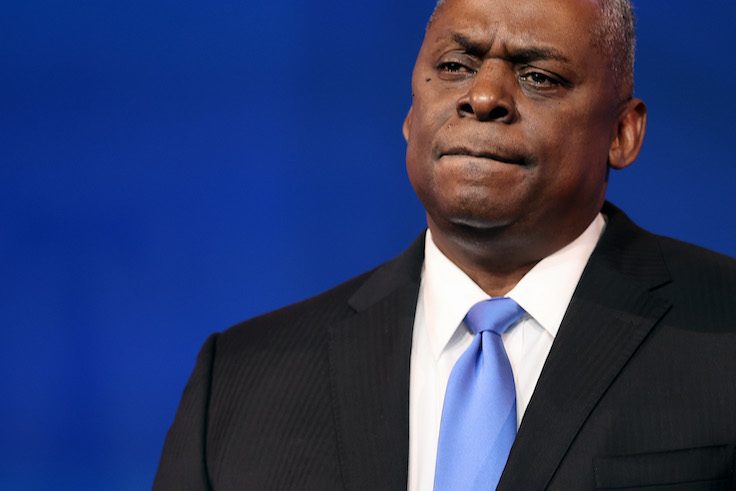President-elect Joe Biden's defense secretary nominee, Lloyd Austin, dodged questions from senators about how he would update America's nuclear weapons as China and Russia increase their own stockpiles.
Republicans grilled Austin at a Senate confirmation hearing on Tuesday on how the Biden administration would work to upgrade America's dated nuclear arsenal. Sens. Deb Fischer (Neb.), Jim Inhofe (Okla.), and Kevin Cramer (N.D.) said America must maintain its nuclear deterrent as major nuclear powers such as Russia and China grow more aggressive. Austin was noncommittal when asked how Biden planned to address America's aging weaponry.
"I look forward to getting on board if confirmed and having an ability to kind of look under the hood and see exactly what we're doing with our nuclear forces," Austin told Fischer.
A Pentagon report in September warned that China aims to double its nuclear-warhead stockpile in the next decade, and Moscow has developed innovative nuclear weapons outside of the provisions of arms-control treaties between the United States and Russia. America's own stockpile has lagged behind. B-52 bombers that carry nuclear weapons have been in service since the 1950s and could remain operable until 2050, nearly a 100-year span of service. Other technologies integral to America's nuclear arsenal date back to the Reagan administration and earlier. Minuteman III, America's chief missile system, has been in operation since 1970.
During the hearing, Austin would not commit to replacing the Minuteman III system when asked by Sen. Cramer
Fischer, the chairwoman of the Senate Armed Services subcommittee overlooking nuclear weapons, told the Washington Free Beacon the time for nuclear modernization has long passed.
"As threats continue to grow, and Russia and China expand their nuclear forces, the need for modernization has only increased," Fischer said. "While some longstanding opponents are renewing their calls for reductions or delays, the Biden administration should recognize that these voices are well outside the mainstream and base its approach on a clear-eyed, objective assessment of the facts."
Tim Morrison, a Hudson Institute senior fellow and former Trump administration arms-control official, echoed Fischer's sentiments. Morrison said the growing influence of progressives in the Democratic Party may limit Biden's ability to keep pace with the ambitious—and costly—technological advances of countries such as China. He said the "disarmament fantasies" of some influential Democrats could prove "destabilizing."
"The Russians and the Chinese are in the midst of an arms race," Morrison said. "The chief question for the Biden administration is whether it will stick to the disarmament fantasies of the progressive left or will it align itself with the bipartisan consensus to modernize the U.S. nuclear deterrent begun by President Obama and carried forward by President Trump."
On the campaign trail, Biden promised to cut spending on nuclear weapons and renew the New START arms-control treaty with Moscow. Biden has historically been skeptical of investment in nuclear deterrence. In 2001, then-senator Biden emerged as a leading critic of President George W. Bush’s missile defense proposal and has been considered an advocate for denuclearization by advocacy groups since his political career took off in 1972. The Biden transition team did not respond to a request for comment.
Other lawmakers have voiced concern about Biden's stance on nuclear weapons. Rep. Joe Wilson (R., S.C.), a member of the House Armed Services Committee, said American security is largely dependent on its ability to launch nuclear weapons from land, sea, and air—what defense experts refer to as the "nuclear triad."
"I am reasonably concerned that the incoming Biden administration will not prioritize our nuclear programs," Wilson told the Free Beacon. "Maintaining our nuclear triad is a key component of safeguarding peace through strength by deterring our near-peer competitors."
